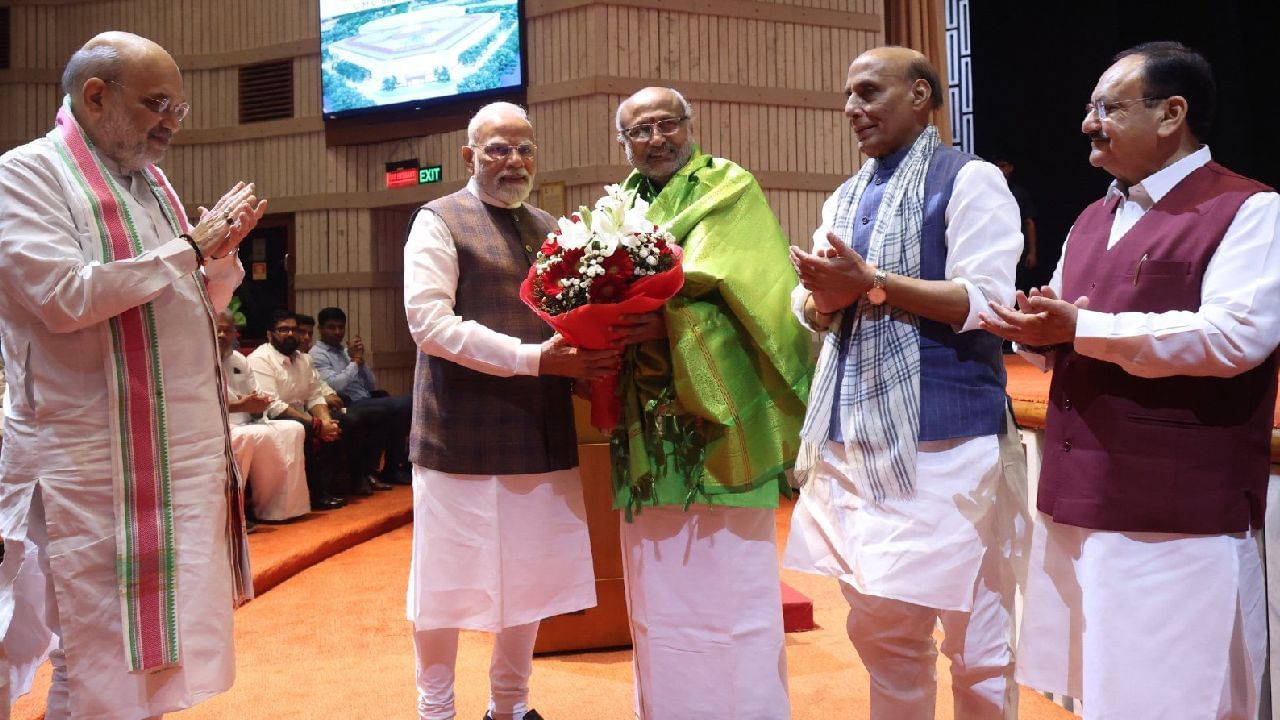NEW DELHI: In a move rich with political symbolism, senior Bharatiya Janata Party leader from Tamil Nadu, CP Radhakrishnan, was elected as the 16th Vice President of India, securing a decisive 452 votes against opposition candidate B Sudershan Reddy who got 300 votes. While the victory was anticipated given the ruling NDA’s numerical superiority in the electoral college, the strategic selection of Radhakrishnan—a dedicated RSS pracharak from the politically significant Gounder community—is being widely viewed as a calculated manoeuvre ahead of next year’s Tamil Nadu assembly elections.
The 75-year-old leader’s journey from a two-time MP from Coimbatore to the nation’s second-highest constitutional post underscores the BJP’s twin objectives of rewarding organizational loyalty and making inroads into Tamil Nadu’s complex caste landscape.
A Reward for Loyalty and a Nod to OBC Politics
Unlike his predecessor, Jagdeep Dhankhar, who joined the BJP from the Congress, CP Radhakrishnan’s political roots run deep within the Rashtriya Swayamsevak Sangh (RSS), having joined the organization as a teenager. His political career, though not marked by consistent electoral success, is defined by unwavering ideological commitment. After winning the Coimbatore Lok Sabha seat in 1998 and 1999 under shifting alliances—first with the AIADMK and then with the DMK—he faced defeats in subsequent elections. Despite these setbacks, his steadfastness was recognized with significant organizational roles, including the presidency of the Tamil Nadu BJP unit in 2005, and later, gubernatorial assignments in Jharkhand and West Bengal.
His reputation as a soft-spoken, non-confrontational leader who maintained cordial relations across political parties earned him the moniker “Vajpayee of Coimbatore.” His measured response during the 1998 Coimbatore bomb blasts, where he publicly distinguished between terrorists and the Muslim community, is still recalled as a testament to his nuanced leadership.
BJP’s Strategic Play for Kongu Nadu and Beyond
The choice of Radhakrishnan is a clear strategic gambit aimed at the 2026 Tamil Nadu assembly polls. Hailing from the OBC Gounder community, which holds significant sway in the western Kongu Nadu region comprising industrially crucial districts like Coimbatore, Tiruppur, Salem, Namakkal and Erode, his elevation is designed to resonate with a demographic pivotal to electoral success in the state.
The BJP aims to leverage this appointment to consolidate OBC votes, particularly among the Gounders, and present itself as a party that empowers backward classes at the highest level, directly countering the Dravidian parties’ narrative of social justice.
Furthermore, by bestowing such a prestigious position on a leader from south, particularly from Tamil Nadu, the BJP seeks to project itself as a party that values the state’s contribution to national politics, a theme likely to be central to its campaign. The move is also expected to strengthen the BJP’s alliance with the AIADMK, as both parties seek to challenge the ruling DMK in a region where community identity plays a decisive role in electoral outcomes.
